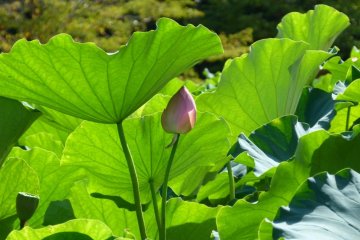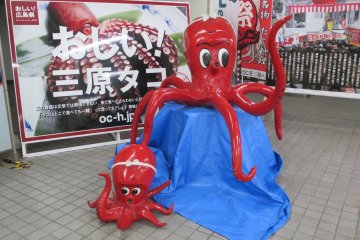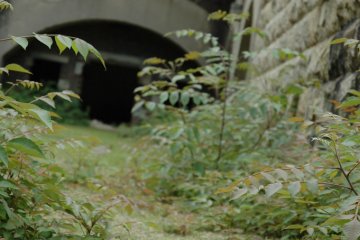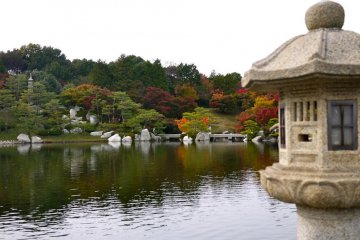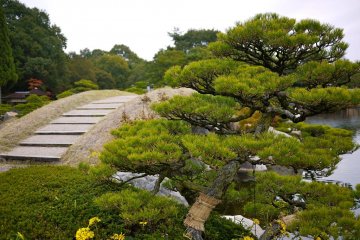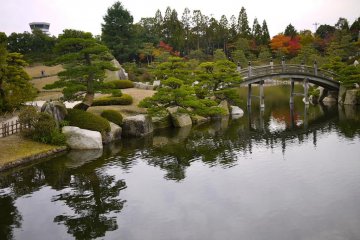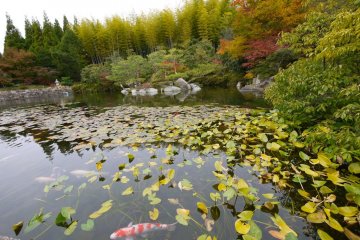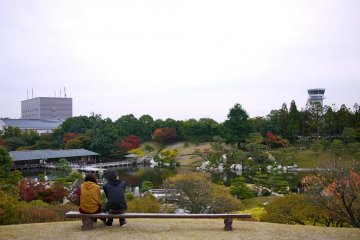While it doesn't have the history of Shukkeien garden in Hiroshima city, nor is it likely to make any top garden lists like Korakuen in Okayama, Sankeien is an expansive garden with very pleasant views.
All classical Japanese gardens are, by definition, man-made, but, built in 1993, the human hand is more here evident than at gardens with a longer history. That said, Sankeien is beautifully landscaped, and if you have time to kill at Hiroshima Airport, are staying at the Hiroshima Airport Hotel, or are in the area visiting Chuo Shinrin Koen Park, it is definitely worth an hour or so of your time.
Your first view of the garden itself is really quite impressive. The scale is quite grand and reminded me of the gardens at the Adachi Museum of Art in Shimane Prefecture. These gardens are not behind glass, however, and, built in the circular style, are meant to be explored.
A long platform, based upon the hirabutai at Itsukushima Shrine on Miyajima extends from in front of the admission booth, shops and teahouse out into a large pond, the Ō-umi, which represents the Seto Inland Sea. There are many large and colorful koi carp swimming in the pond. Pellets can be purchased for ¥100 a bag, and the feeding frenzy that ensues after casting a into the water delights children and fascinates adults in equal measure.
The Ō-umi is one of the three landscapes represented in miniature that give the the garden its name which literally means "three views". The others are representations of mountain and country village landscapes. Many lovely plants, trees and flowers line the path that circumnavigates the pond and there are a couple of delightful bridges that cross over the water on the far side.
The garden climbs up the hillside were you will find the lovely momiji-dani (maple valley), an ume plum tree garden and the small Sato-no-ike pond which is backed by a large bamboo grove. Here, benches on a small patch of well-manicured grass look over the garden below. It is a nice spot, but being able to see over the garden walls out to the airport breaks the atmosphere somewhat; it is kind of cool to see a 747 taking off over a classical Japanese garden though.
Paths lead further back still up either side of a narrow valley up to Sandan-no-taki falls and the trees here are gorgeous in the autumn when the leave turn fiery red.
Throughout most of the year, there are blooms, blossoms and to enjoy; and in the winter, the garden looks very impressive after a snowfall. The pamphlet available at the ticket office offers a basic, but perfectly sufficient explanation in English as well as a clear and easy to follow guide map.



